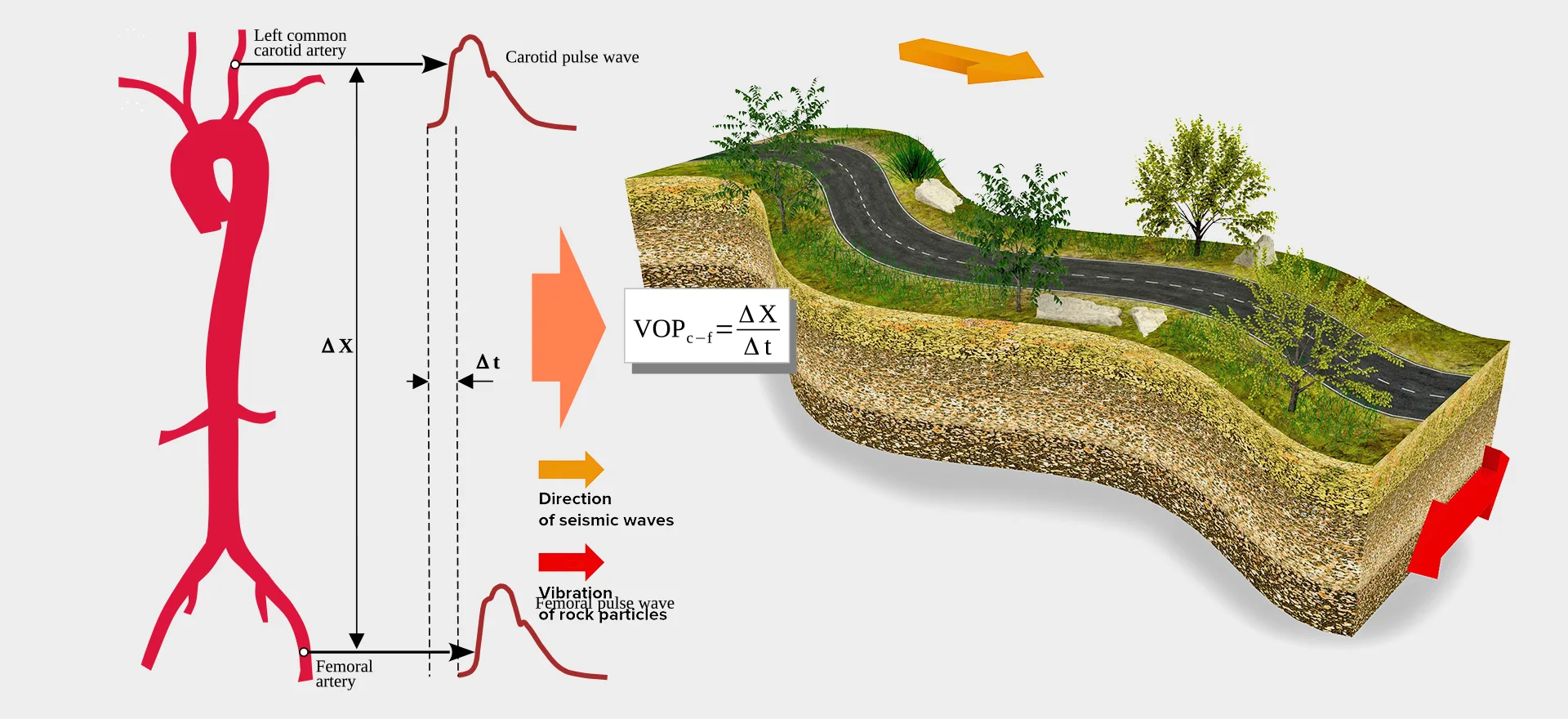What is Pulse Wave Velocity (cfPWV) and Why is it Important?
Pulse wave velocity (cfPWV) is an abbreviation for “carotid-femoral pulse wave velocity.” Pulse wave velocity is a parameter that helps measure the stiffness level of blood vessels and the elasticity of large blood vessels in the body. It refers to the speed at which pulse waves travel between two points in the arteries. It is typically calculated as the distance between the carotid artery and the femoral artery. High cfPWV values may increase the risk of conditions such as heart disease and stroke. Pulse wave velocity measurement is an important tool for monitoring vascular health. Pulse wave velocity may be used in certain situations. These situations can be listed as follows:
· Assessment of Heart and Vascular Disease Risk: Factors such as advanced age, hypertension, diabetes, etc. can lead to arterial stiffness, increasing the risk of cardiovascular disease. The risk of disease can be assessed by measuring pulse wave velocity.
· Effect and Assessment of High Blood Pressure: The effect of high blood pressure on blood vessels, which can lead to hardening and loss of elasticity, can be assessed by measuring pulse wave velocity.
· Treatment Management Follow-up and Assessment: Pulse wave velocity is one of the important parameters in the treatment of cardiovascular disorders. The patient’s response to treatment can be evaluated using pulse wave velocity.
Pulse wave velocity (cfPWV) measurement plays a crucial role in assessing cardiovascular disease risk, managing hypertension that can cause damage and hardening of artery walls, monitoring cardiovascular health, and evaluating the patient’s response to treatment.
For more information about pulse wave velocity (cfPWV) measurement and to determine if you need a pulse wave velocity measurement, consult your Cardiovascular Surgery Specialist.



